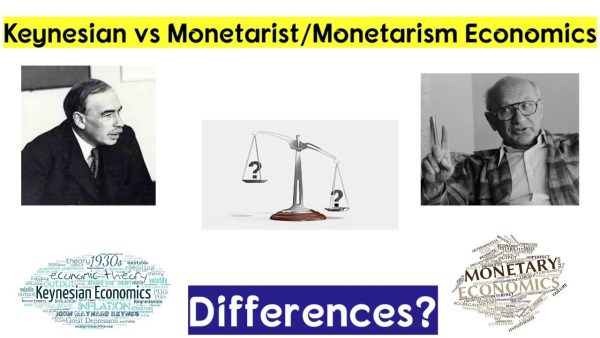
Eco. 204 (Online Discussion/Quiz 1—Propositions of Monetarism and the Monetarist System)—15-6-2023
1. One school of economic thought, called monetarism, maintains that the money supply (the total amount of money in an economy) is the chief determinant of current dollar GDP in the short run and the price level over longer periods. Monetary policy, one of the tools governments have to affect the overall performance of the economy, uses instruments such as interest rates to adjust the amount of money in the economy. Monetarists believe that the objectives of monetary policy are best met by targeting the growth rate of the money supply. Monetarism gained prominence in the 1970s—bringing down inflation in the United States and United Kingdom—and greatly influenced the U.S. central bank’s decision to stimulate the economy during the global recession of 2007–09. Today, monetarism is mainly associated with Nobel Prize–winning economist Milton Friedman. In his seminal work A Monetary History of the United States, 1867–1960, which he wrote with fellow economist Anna Schwartz in 1963,
In view of the above, clearly discuss and analyze the Concept of Monetarism, Monetarist System and their fundamental postulations. Explain your answers in not less than 1000 words
2. Friedman argued that poor monetary policy by the U.S. central bank, the Federal Reserve, was the primary cause of the Great Depression in the United States in the 1930s. In their view, the failure of the Fed (as it is usually called) to offset forces that were putting downward pressure on the money supply and its actions to reduce the stock of money were the opposite of what should have been done. They also argued that because markets naturally move toward a stable center, an incorrectly set money supply caused markets to behave erratically. Do you agree with Prof. Friedman? If yes, how? If no, why? Explain your answers in not less than 1000 words
3. Monetarism gained prominence in the 1970s. In 1979, with U.S. inflation peaking at 20 percent, the Fed switched its operating strategy to reflect monetarist theory. But the force of monetarism seemed to have declined in the following decades as its ability to explain the U.S. economy seemed to wane. Nevertheless, some of the insights monetarists brought to economic analysis have been adopted by nonmonetarist economists. Do you agree? If yes, how? If no, why? Explain your answers in not less than 1000 words





